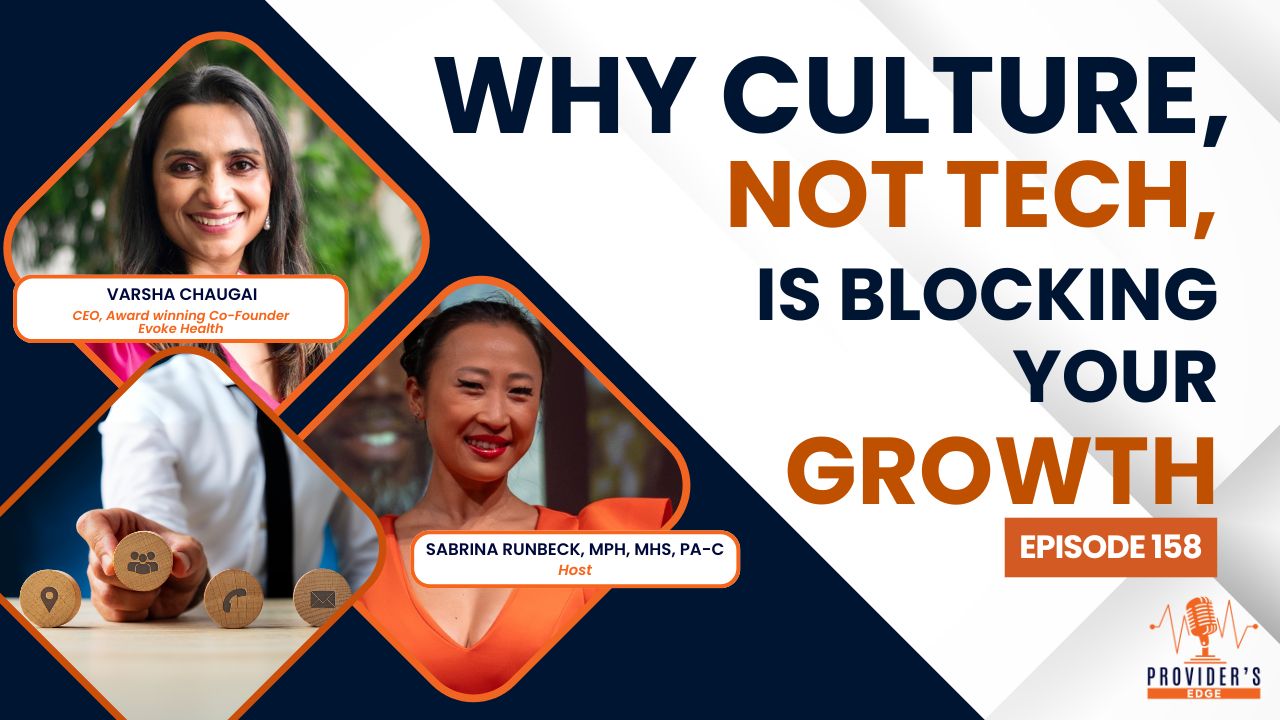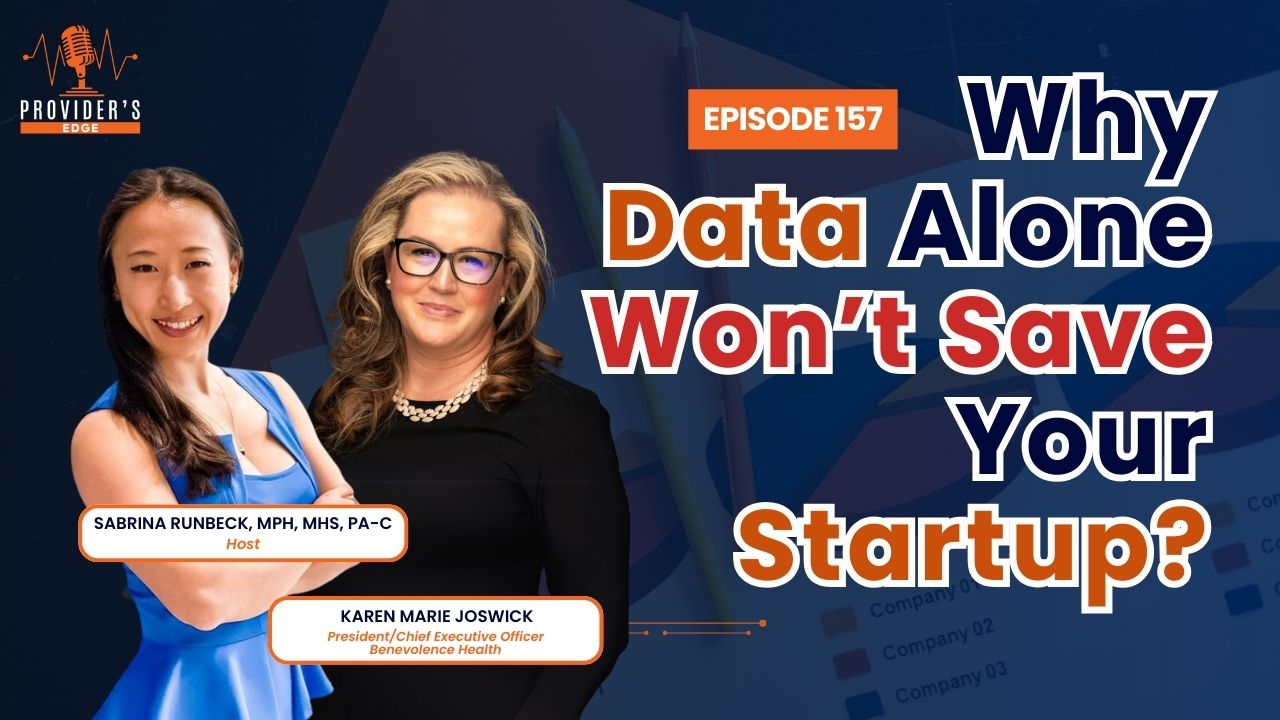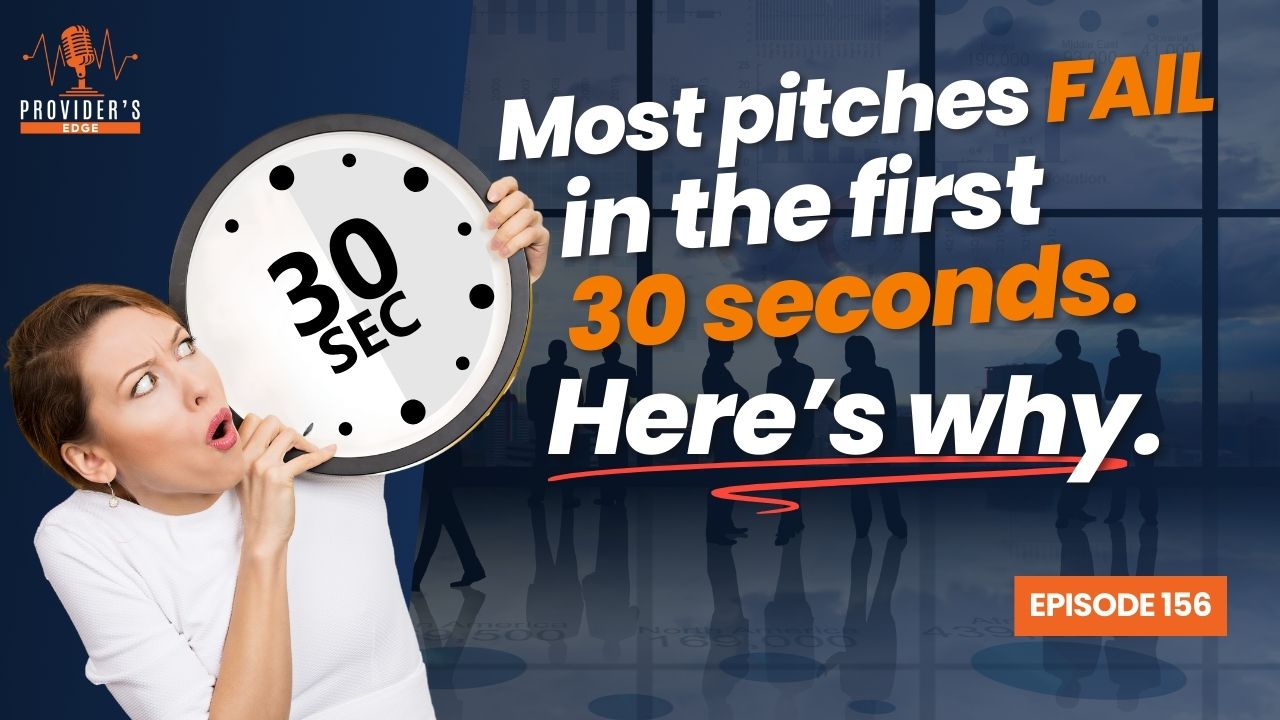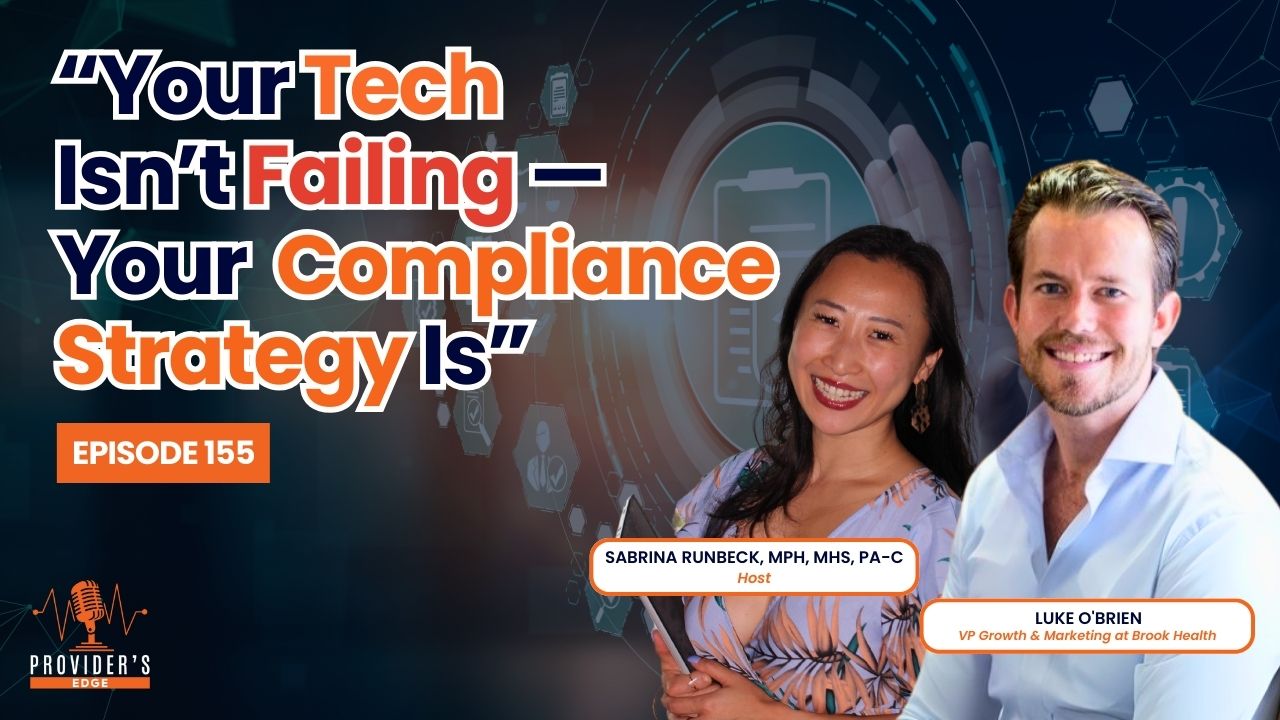
The Culture Shift Driving
Long-Term Care Efficiency
Long-term care systems are bleeding time, money, and talent—and the problem isn’t a lack of technology.
It’s resistance to transparency.
But one founder-led solution, built in under five months, is quietly transforming communication between long-term care facilities and families—reducing call volumes by 50% and improving satisfaction across the board.
Let’s unpack how Evoke Health isn’t just digitizing updates—it’s driving a cultural shift that’s finally making long-term care efficient, collaborative, and scalable.
Listen anywhere you get your podcastin' on.
Live Interview

The Problem: Legacy Culture Blocking Modern Efficiency
Despite millions invested in health tech, long-term care (LTC) facilities remain locked in outdated workflows. Phone-tag updates, paper charting, and staff burnout are symptoms of an even deeper issue: fear.
Nursing staff are hesitant to share too much. Administrators worry about complaints. Families feel left in the dark—and emotionally charged. Everyone’s protecting themselves.
This isn't an infrastructure issue. It's a culture of defensiveness.
For investors, this means even the best tools stall at the point of adoption. But when culture shifts? Adoption accelerates. Fast.
As Sabrina Runbeck, Co-Founder of PulsePoint Path, puts it:
"Technology can accelerate outcomes, but only when it's accepted. That means building trust into your adoption strategy, not just your product roadmap."
Case Study: Evoke Health’s Impactful Pivot
Co-founded by Varsha Chaugai, Evoke Health built a communication platform for long-term care teams and families. Within weeks of its launch:
- Call volumes dropped 50% at pilot sites
- 70% of families onboarded in the first week
- Nursing teams reported fewer repeat questions and better, more actionable conversations
The solution wasn’t just digital. It was relational.
“We’re not just trying to sell a platform—we’re trying to create a culture shift.” — Varsha Chaugai, Co-Founder, Evoke Health
This shift in mindset among both staff and families didn’t happen by accident. It was designed into the rollout process: onboarding support, clarity in communication, and above all, leadership buy-in.
Varsha knew from the beginning that the real problem wasn't inefficiency—it was fear of being seen.
“People think families will punish them for transparency. But the truth is, transparency prevents complaints.” — Varsha Chaugai
Why It Works: Culture as the Catalyst
The key wasn’t new features. It was repositioning transparency as support, not surveillance.
- Families went from passive recipients to empowered participants
- Staff moved from over-communicating reactively to collaborating proactively
- Admins saw a measurable reduction in complaints and emotional confrontations
Transparency, when introduced with care, doesn’t spark chaos. It builds trust loops.
"You're not just building software. You're building courage—in a system that's been afraid for too long."
— Sabrina Runbeck, Co-Founder, PulsePoint Path
This model of empowerment instead of exposure becomes the foundation for real-time care that feels human, not bureaucratic.
And it positions technology not as a disruptor—but as a harmonizer.
Sabrina adds:
"We often hear that healthcare is resistant to change. What it's really resistant to is risk. When founders can prove that transparency lowers risk and lifts morale, doors open."
Investor Insight: Efficiency Isn’t Always Built on Speed—It’s Built on Alignment
LTC facilities are systems of high emotion, high liability, and high turnover. That makes them complex buyers.
What Evoke Health proved is that adoption accelerates when leadership leads.
One facility that initially resisted implementation had full executive buy-in. Result? Families engaged immediately, and clinical staff followed suit.
This top-down alignment shortened the change management curve, cut back manual communication, and freed up clinical bandwidth.
"When systems invest in both the people and the tech—in parallel—you see outcomes shift quickly. Burnout goes down. Collaboration goes up. And investors get the return they expect." — Sabrina Runbeck
Investor takeaway:
- Top-down mandates drive faster ROI in emotionally resistant environments
- Tools that reduce emotional labor offer soft ROI and hard savings
- Efficiency isn’t just about automating workflows—it’s about empowering humans
Scaling This Model: What to Look for as an Investor
Evoke Health isn’t just a case study—it’s a signal. Culture-first solutions are gaining traction, and investors should prioritize:
- Speed to onboard with minimal IT dependencies
- Family or patient-facing components that reduce admin burden
- Built-in behavior change support for clinical staff
- Leadership-aligned go-to-market strategies
Long-term care is set to exceed $467B by 2027, with much of the demand driven by aging populations, chronic disease, and workforce shortages. Scalable models that integrate emotional intelligence into operational tech will have a strategic edge.
"Investors often look for quick wins. But in healthcare, sustainable growth lives in the intersection of empathy and execution." — Sabrina Runbeck
These aren’t just patient solutions. They're workforce solutions. They're trust solutions. And they signal which companies are built to last.
Founders: Think Culture Before You Think Code
This is the takeaway Varsha left us with: real traction in healthcare doesn't come from code alone. It comes from co-designing with the end users in mind.
When nurses, admins, and families feel seen, respected, and heard, adoption becomes a byproduct—not a battle.
If your product solves a real problem, but you’re still seeing pushback, it might not be your product.
It might be the story that surrounds it.
Change that story—and you change your outcomes.
Are you backing solutions that work in the real world—not just on paper?
If you’re an investor looking to meet founders solving overlooked problems with traction and grit, visit HealthTechShowdown.com to meet the next wave of scalable health tech leaders.
Want to evaluate a company’s impact-readiness first? Use the Impact Quotient Quiz to screen for alignment across mission, market, and model.
Investors seeking scalable healthtech solutions that reduce operational burden, improve family satisfaction, and accelerate digital adoption—Evoke Health is leading that charge in long-term care.
And if you're investing in or advising healthcare startups tackling change-resistant environments, PulsePoint Path can help them gain traction and protect capital with these founder-first programs:
- Leadership Maximizer – Build alignment among executive teams and accelerate cross-functional collaboration to drive adoption-ready cultures.
- Pathfinder – Diagnose root bottlenecks across operations, team, and market strategy with a founder-specific SWOT framework.
- Capital Readiness Scorecard – Uncover weak links in burn rate, team structure, or value communication before fundraising rounds stall.
- HealthTech Showdown – Help your top ventures step into the spotlight in front of healthcare enterprise buyers and investors who are actively backing what they’ve built.
- About Sabrina Runbeck
Sabrina Runbeck, MPH, MHS, PA-C helps healthcare technology companies scale sustainably—without burning out their teams or running out of cash.
She is the Co-Founder of PulsePoint Path and works alongside a 12-integrated board of advisors to help founders make strategic decisions that multiply impact and protect capital.
Her signature 5D Integrated System helps companies move beyond one-dimensional problem solving—what they think the issue is—and instead, builds an Empowered Ecosystem across leadership, team dynamics, and systems alignment. This is how founders evolve from early traction to 10x growth.
Sabrina is also a TEDx speaker, former Cardiothoracic Surgery PA, and trusted advisor with over 15 years of experience in public health, neuroscience, and business acceleration.
Recommended Podcast Episodes
Be a guest on our show
The Provider's Edge show is always looking to feature healthcare change-makers and celebrate the work they are doing to improve healthcare.
Together, we can encourage other healthcare entrepreneurs and startup founders to up-level their businesses.
If you or someone you know could be a good fit as a guest on the show, please click on the bottom below to apply as a speaker.
Healthcare Entrepreneurs!
I can help you gain visibility and credibility in the right circles so you can accelerate your mission and profitability!
After overcoming burnout working in surgery, I went back to my roots in neuroscience and public health. I learned the importance of building key human relationships with my team throughout our organization.
While helping healthcare executives and entrepreneurs to get out of the day-to-day operation of their practice, I realized I needed more visibility and more connections to reach my ideal clients.
Once I set out to be highly visible in the right circles, I was able to leverage my network of strategic partners to convert clients 5x higher than any other marketing channel I had tried previously.
Now I help healthcare change-makers to accelerate their impact and increase profitability by gaining visibility and credibility with the right strategic partners.
My clients no longer worry about where their next client is coming from, the need to plan additional budget for ads spending, or losing the ability to connect with others because their social media account is shut down.
If you want to share your social mission with the world and gain pivotal supporters that become loyal clients... then you are in the right place, with the right consultant who is also a recovered clinician.




